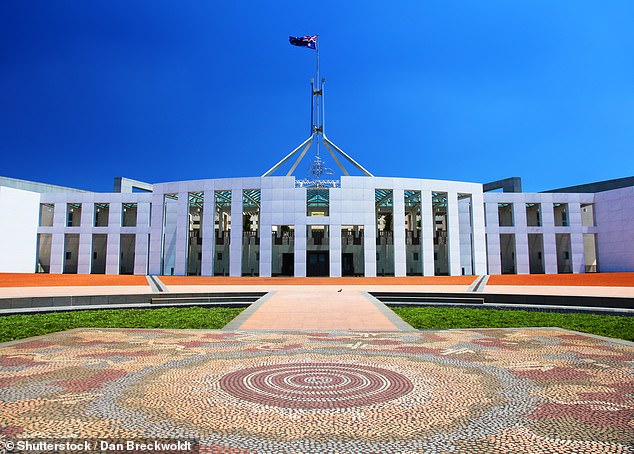AFP union dispute over pay threatens to ‘shut down’ Parliament House
- AFP union in dispute over pay as officers threaten to quit
- Parliament building could be forced to ‘close’
The federal police could stop working within days, threatening to “shut down” the country’s parliament.
Civil servants walked off their posts at Parliament House and key locations including Canberra airport for the first time to strike against what the union described as a “toxic” pay deal.
The AFP will not guard politicians or political events unless there is a “significant” threat, with officers temporarily withdrawn from investigating crimes linked to the National Disability Insurance Scheme and the taxman.
Australian Federal Police Association president Alex Caruana said while contingency plans were in place, parliament would have to “shut things down” if the threat level became too high without federal police.
“Ultimately we are trying to disrupt parliament, that is our goal,” he said.
The breakdown in negotiations came after Commonwealth civil servants, including federal police, were offered an 11.2 per cent pay rise over three years, with additional work-from-home arrangements.
“We are going to make it difficult for them and this is a clear way to send the message to politicians, and particularly to the current government, that they need to take better care of our members,” Mr Caruana said.
He said that there should be three to five days’ notice before a strike, which would result in the police being absent for the entire shift.
The federal police could stop working within days, a move that threatens to ‘shut down’ the country’s parliament (stock image)
The union believes that police officers should not be equated with civil servants who have an office job.
According to Mr Caruana, AFP officers, who are among the worst paid in the country, are reportedly leaving the police force en masse due to uncompetitive wages and working conditions.
Six percent of members surveyed said they would leave the AFP immediately if the proposed wage deal were to go through, citing pressure and lack of resources. More than two-thirds said they would actively seek employment elsewhere.
Federal MPs and senators were informed of the upcoming protected strike on Sunday.
Independent senators Jacqui Lambie and David Pocock, in solidarity with the AFP union, called on Attorney General Mark Dreyfus to intervene and help negotiate a fair deal.
Senator Lambie said she felt unsafe when police did not get a pay rise.
“These guys put their lives on the line every time they put on that uniform… and then gave them the damn raise they deserved,” she said.
Senator Lambie said if “anything happens” while the AFP is on strike, the blame would lie squarely with Labor for failing to resolve the conflict.
Senator Pocock said politicians were “very happy” to get the biggest pay rise in a long time, while not having to offer the same conditions to frontline police.

Civil servants are set to walk off their posts at Parliament House and key locations including Canberra Airport for the first time to strike over what the union describes as a “toxic” pay deal
“We’ve heard the Labour Party talk a lot about equal jobs, equal pay, and yet they’re happy that the AFP is the lowest paid police force in the country,” he said.
According to Mr Caruana, the skills of AFP officers are in high demand in both the private and public sectors.
“AFP officers encounter the worst forms of humanity and must enter the dark world of paedophile rings, international drug trafficking, illegal arms dealers and murderous terrorists every day,” he said.
Senate Leader Sue Lines told the House of Lords on Monday that security in Parliament would be tightened and that short-term measures had been introduced after protesters scaled the building last month.
